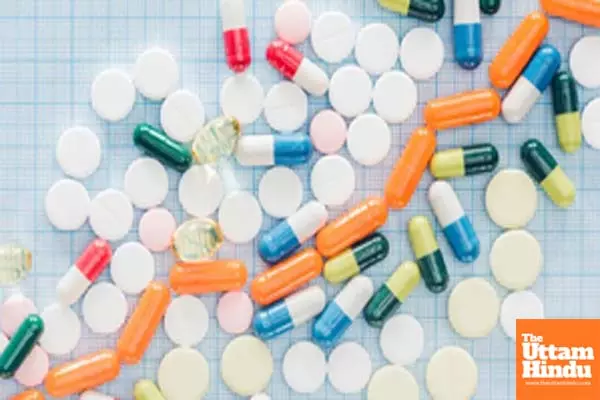
Experts welcome US reciprocal tariff exemption on pharma, call to boost domestic manufacturing

New Delhi (The Uttam Hindu): Industry experts on Thursday welcomed the exemption of Indian pharmaceutical exports from Trump’s reciprocal tariffs while also stressing the need to strengthen domestic manufacturing.
The experts cited the importance of the cost-effective and life-saving Indian generic medicines as the reason for the exemption.
The White House factsheet issued on Wednesday after US President Donald Trump’s announcement of 26 per cent reciprocal tariffs on imports from India said that pharmaceuticals were exempt.
Indian drugs, especially the generics, help hold down the costs of the US healthcare system, which is already one of the most expensive in the world.
“India and the US share a strong and growing bilateral trade relationship, with a shared vision to double trade to $500 billion under the Mission 500 initiative. Pharmaceuticals remain a cornerstone of this partnership, as India plays a vital role in global and the US healthcare by ensuring a steady supply of affordable medicines,” said Sudarshan Jain, Secretary General, Indian Pharmaceutical Alliance (IPA).
“Pharmaceuticals have been exempted from tariffs. The decision underscores the critical role of cost-effective, life-saving generic medicines in public health, economic stability, and national security,” he added.
The US is the largest importer of pharmaceuticals from India, bringing in products in the category worth $8.73 billion during the 2024 fiscal year, according to statistics cited by the India Brand Equity Foundation (IBEF). IBEF said 31.5 per cent of India’s pharmaceutical exports went to the US.
Jain noted that the Indian pharmaceutical industry is committed to advancing the shared priorities of both nations. The country will “strengthen medicine supply chain resilience and reinforce national security by ensuring access to affordable medicines for all,” he said.
Notably, in 2023-24, India's medical device exports to the US stood at $714.38 million, while imports from the US to India were significantly higher at $1,519.94 million, as per data shared by the Export Promotion Council of Medical Devices.
Rajiv Nath, Forum Coordinator, AiMeD stated that “the imposition of a 26 per cent reciprocal tariff on Indian medical device exports to the US may pose a significant challenge to the sector's growth”.
“Historically, India has been a key supplier of cost-effective, high-quality medical devices to the US, primarily in low-value, high volume consumables categories.
However, this new tariff may possibly impact Indian medical devices exports, and we have to explore windows of opportunities where the US has been seeking to diversify its supply chain dependence on any one nation,” Nath said.
He stressed the need to “prioritise healthcare security by strengthening domestic manufacturing and reducing dependency on foreign markets”.

